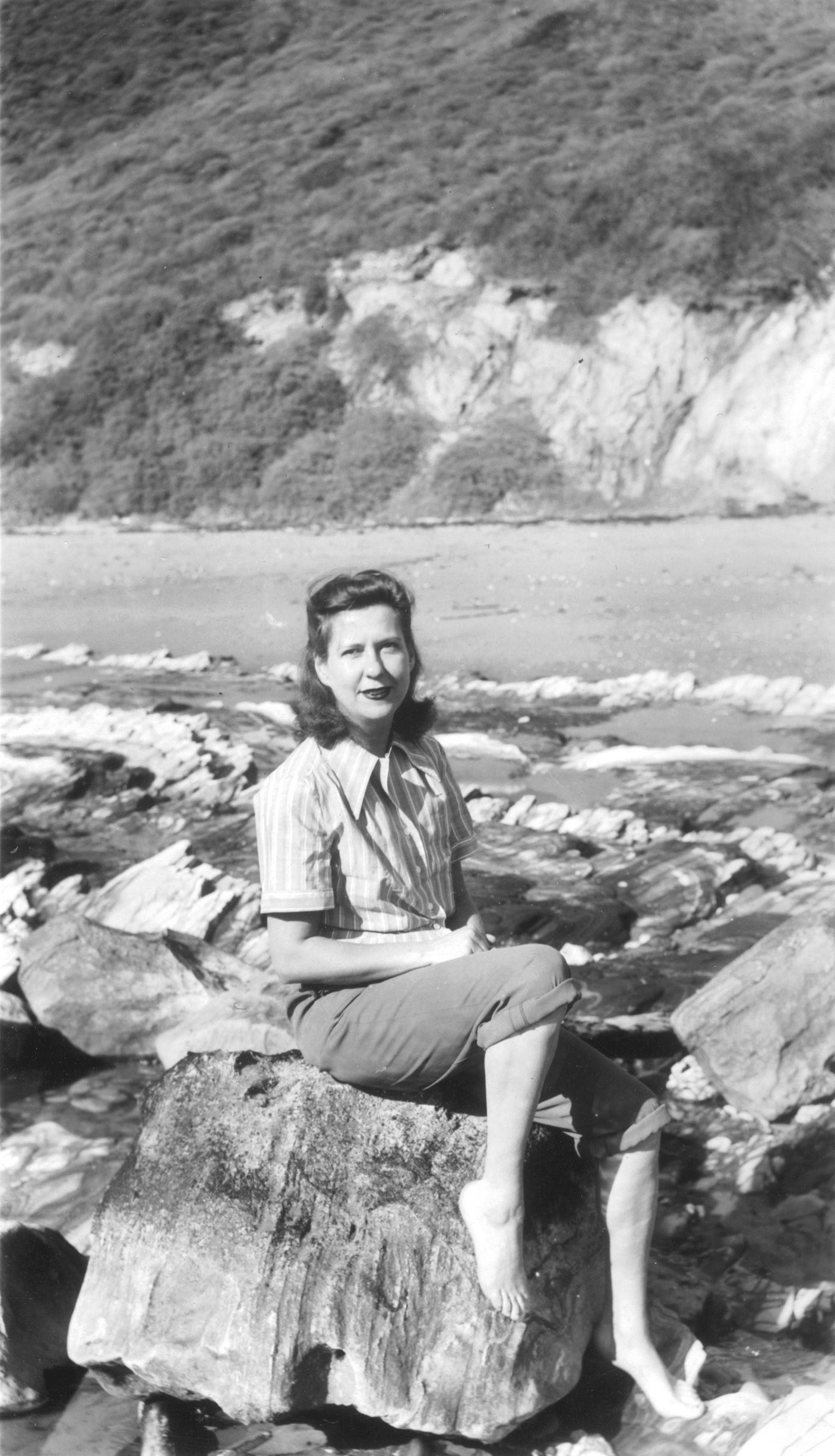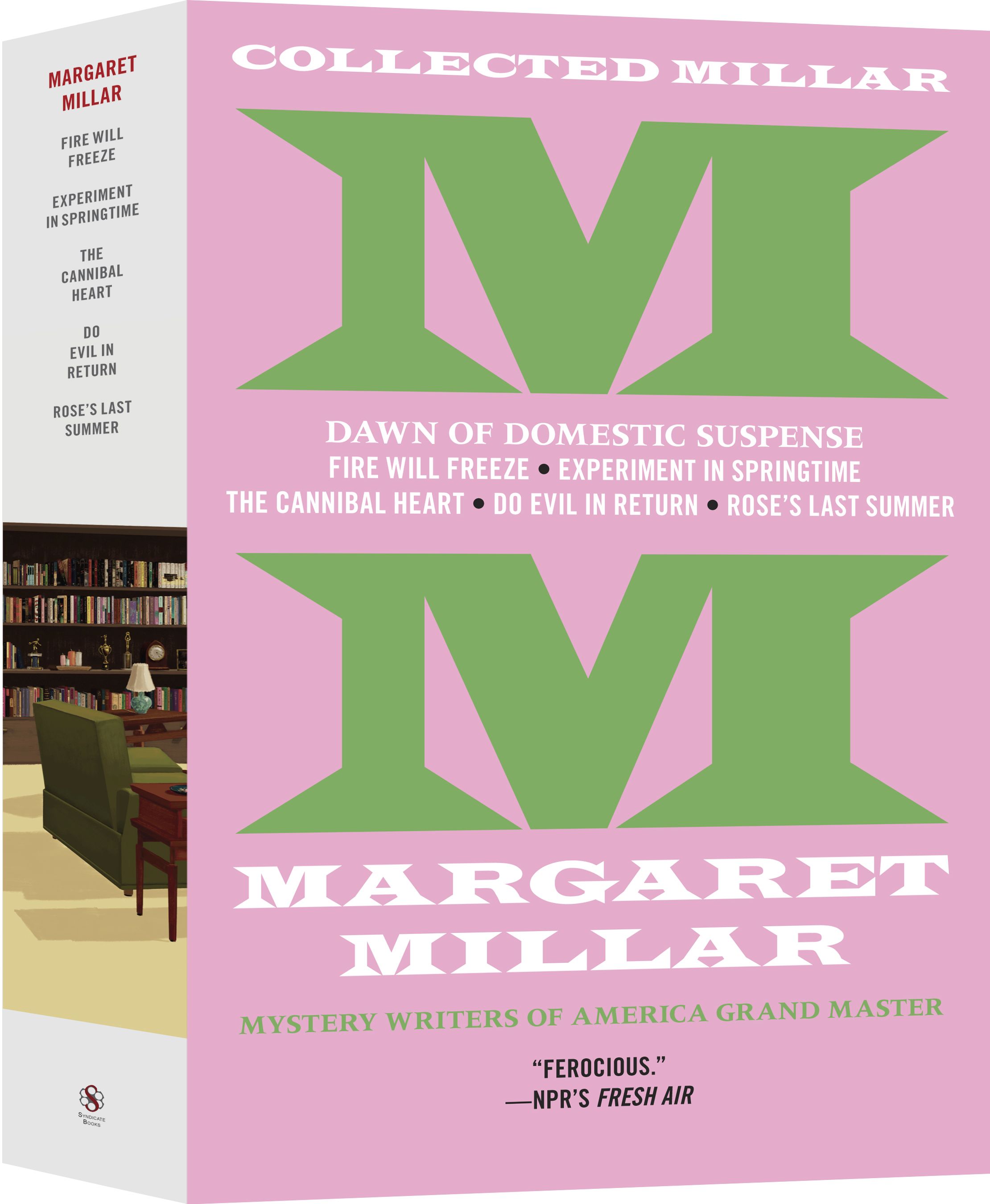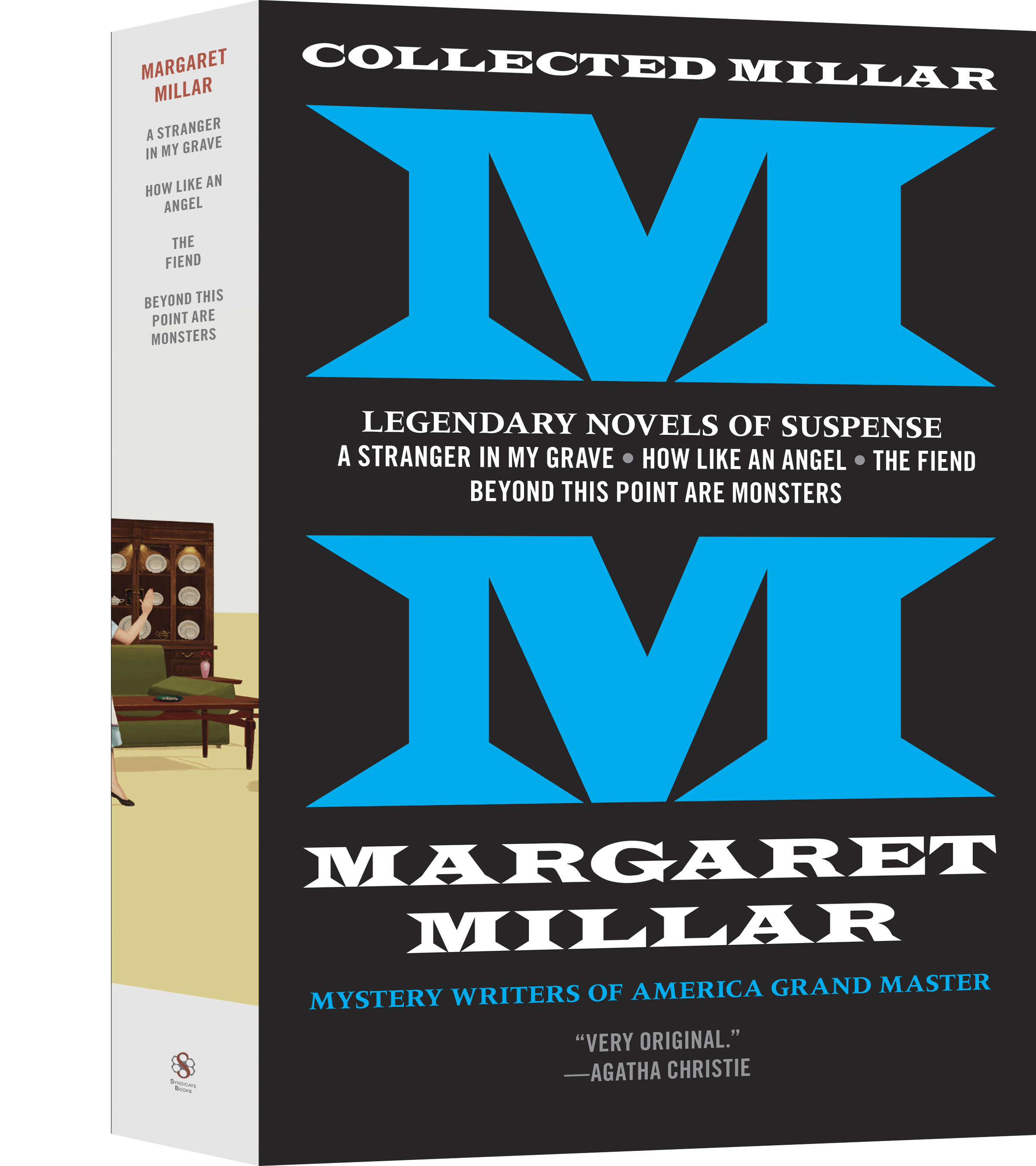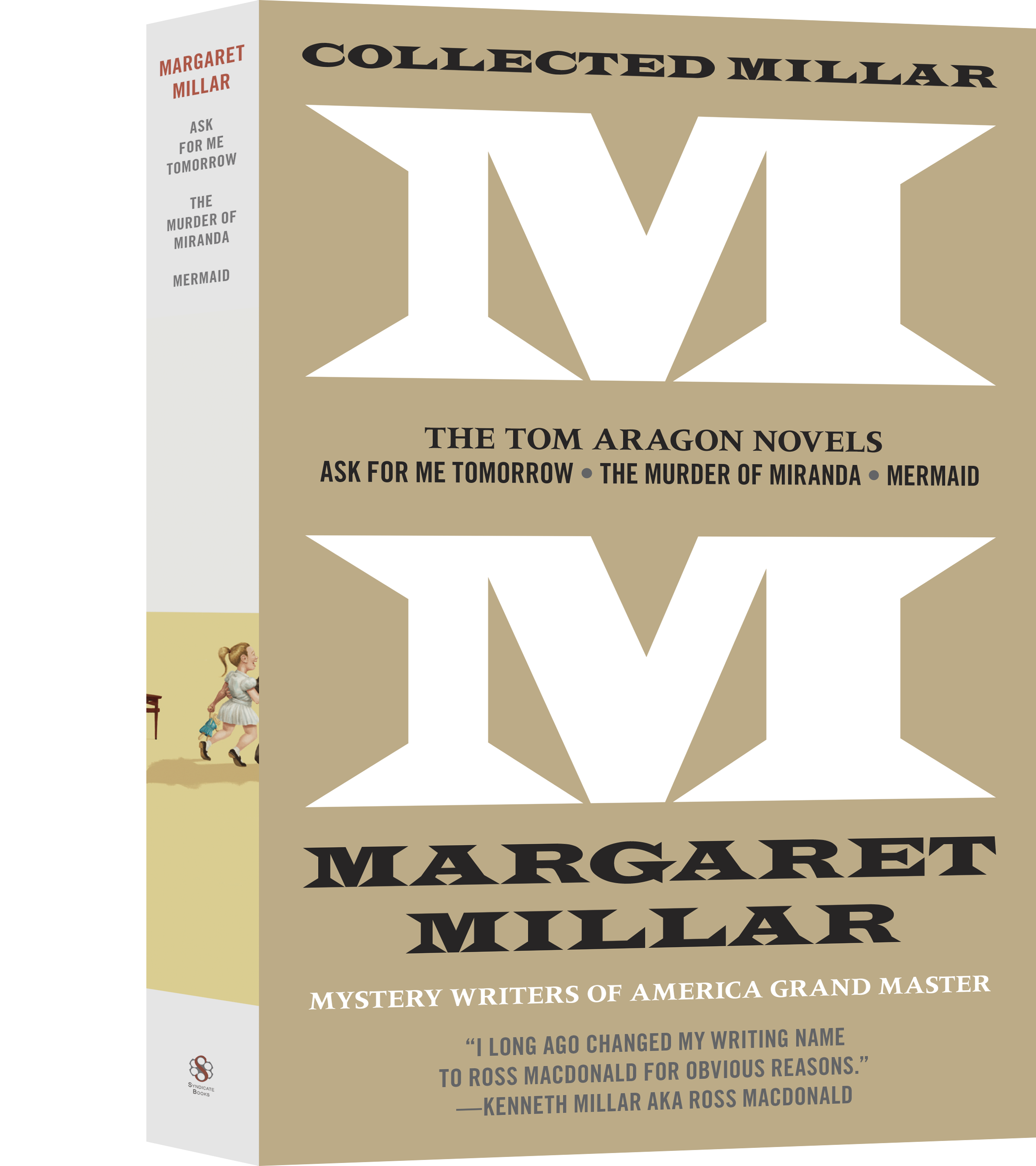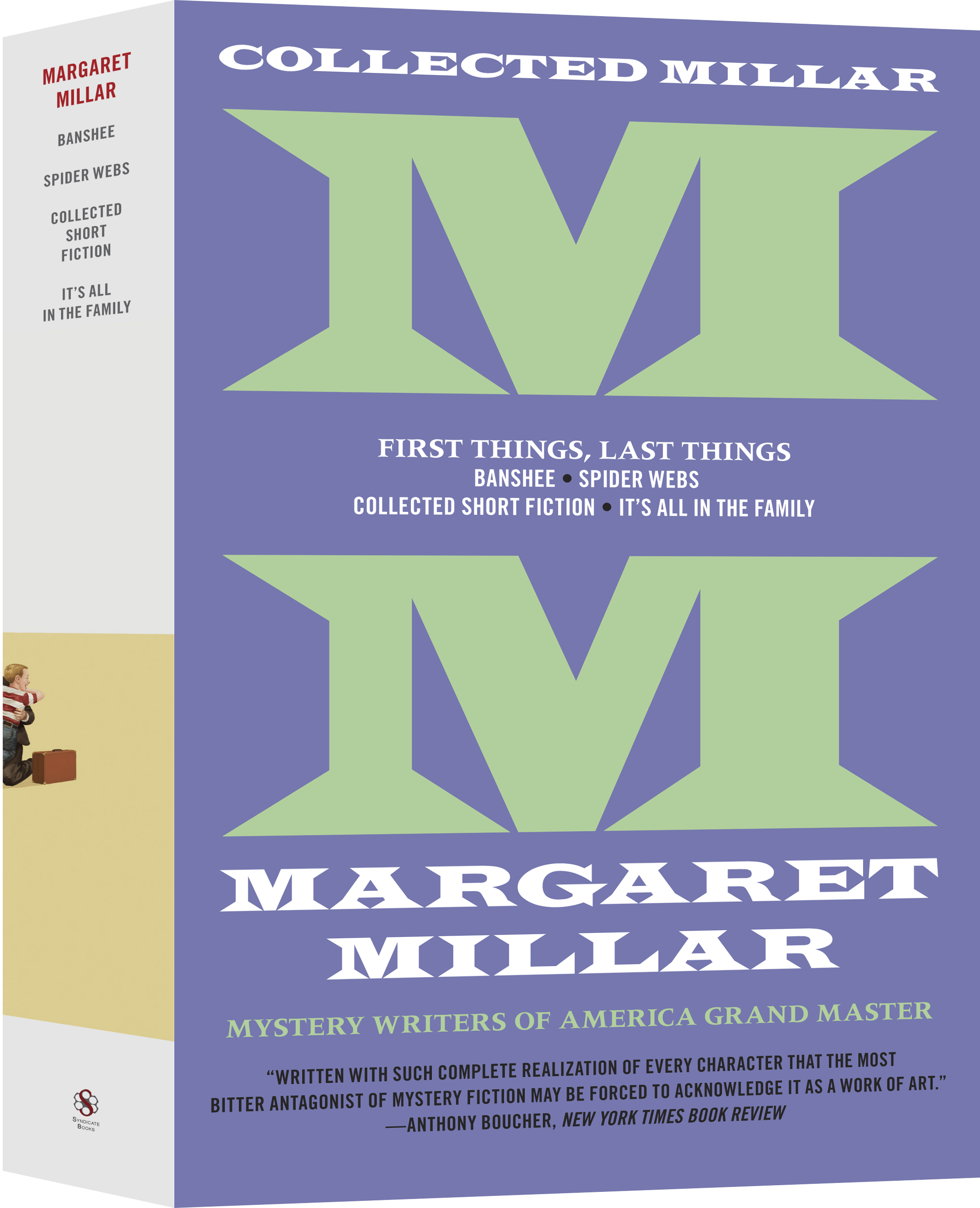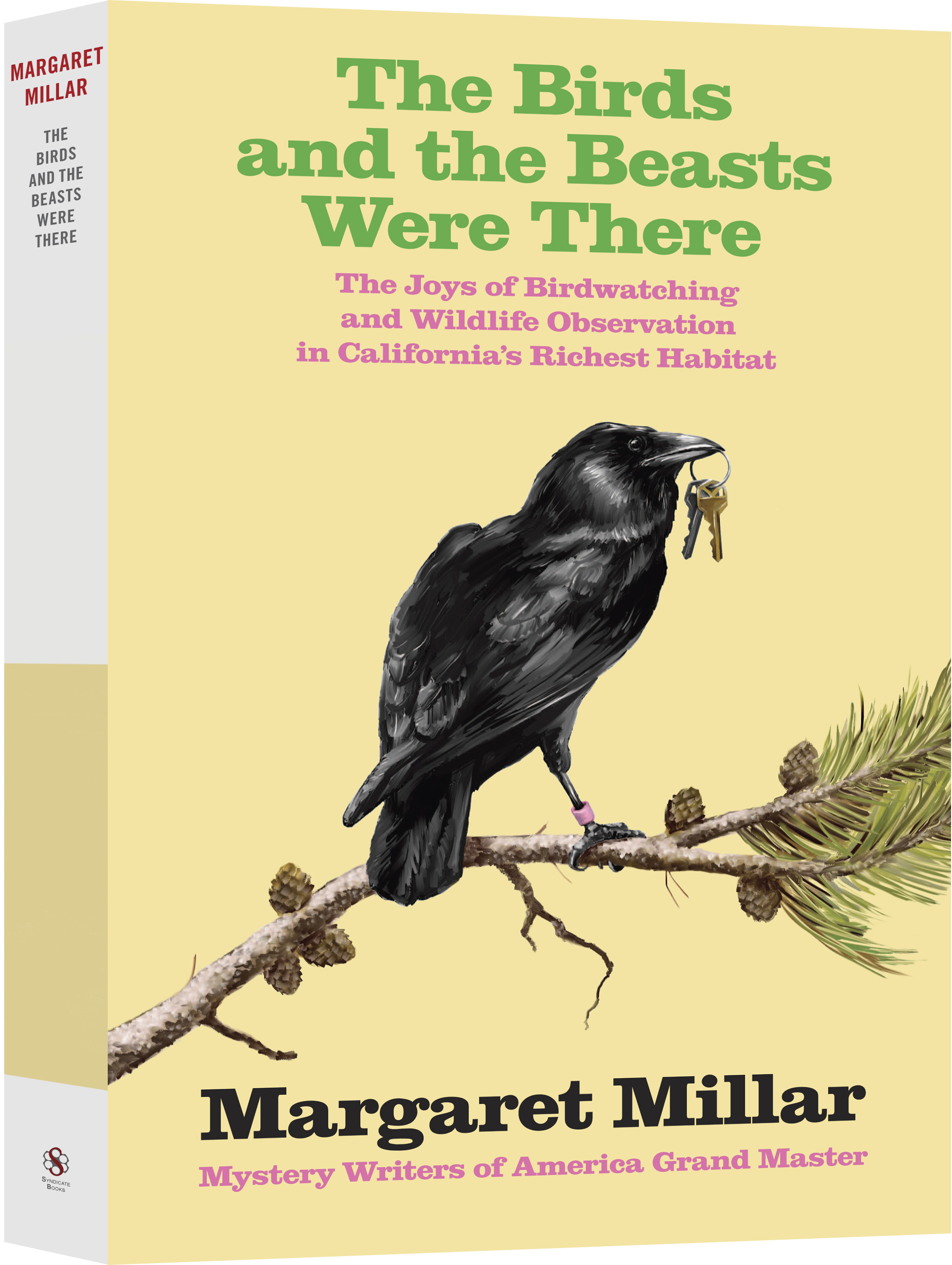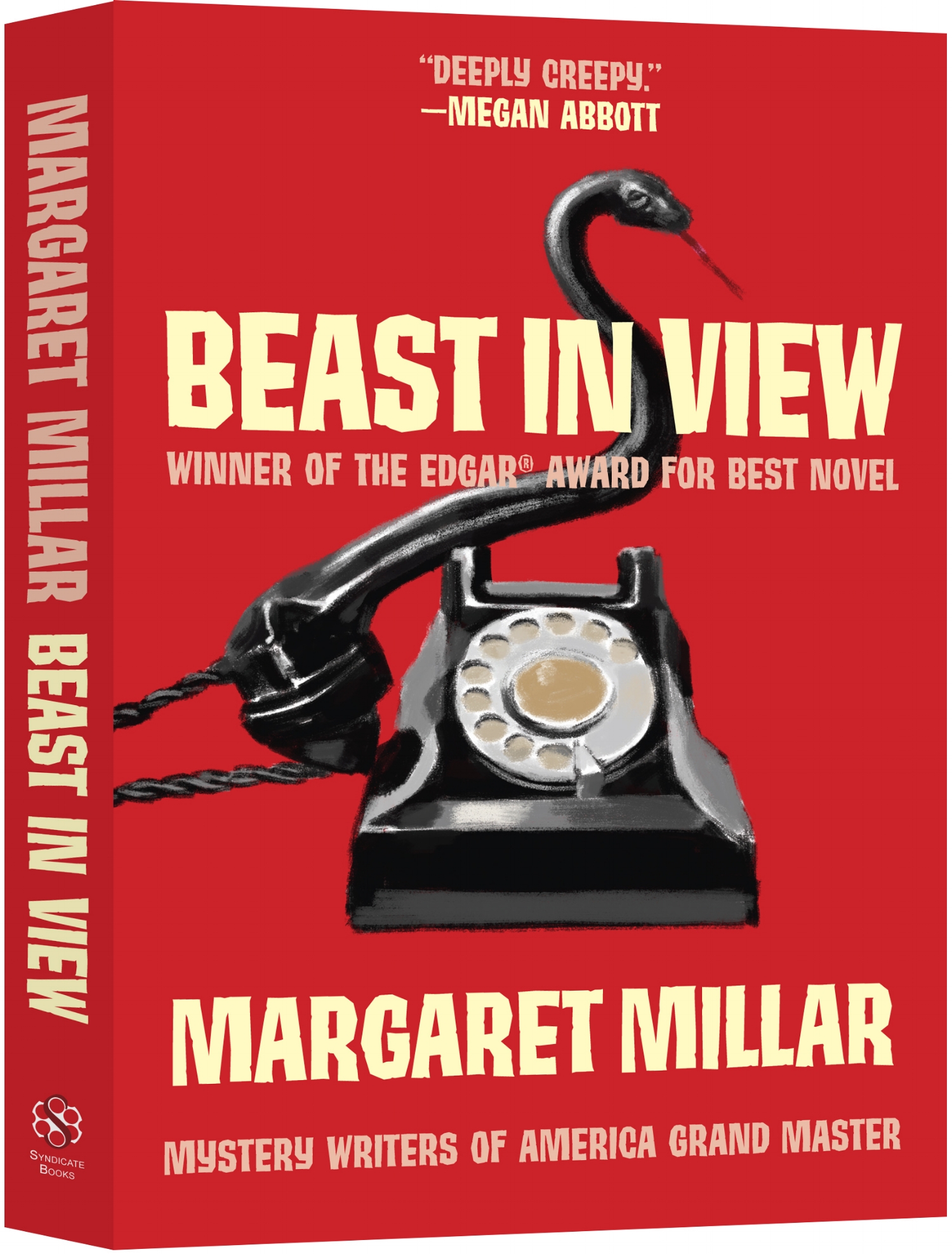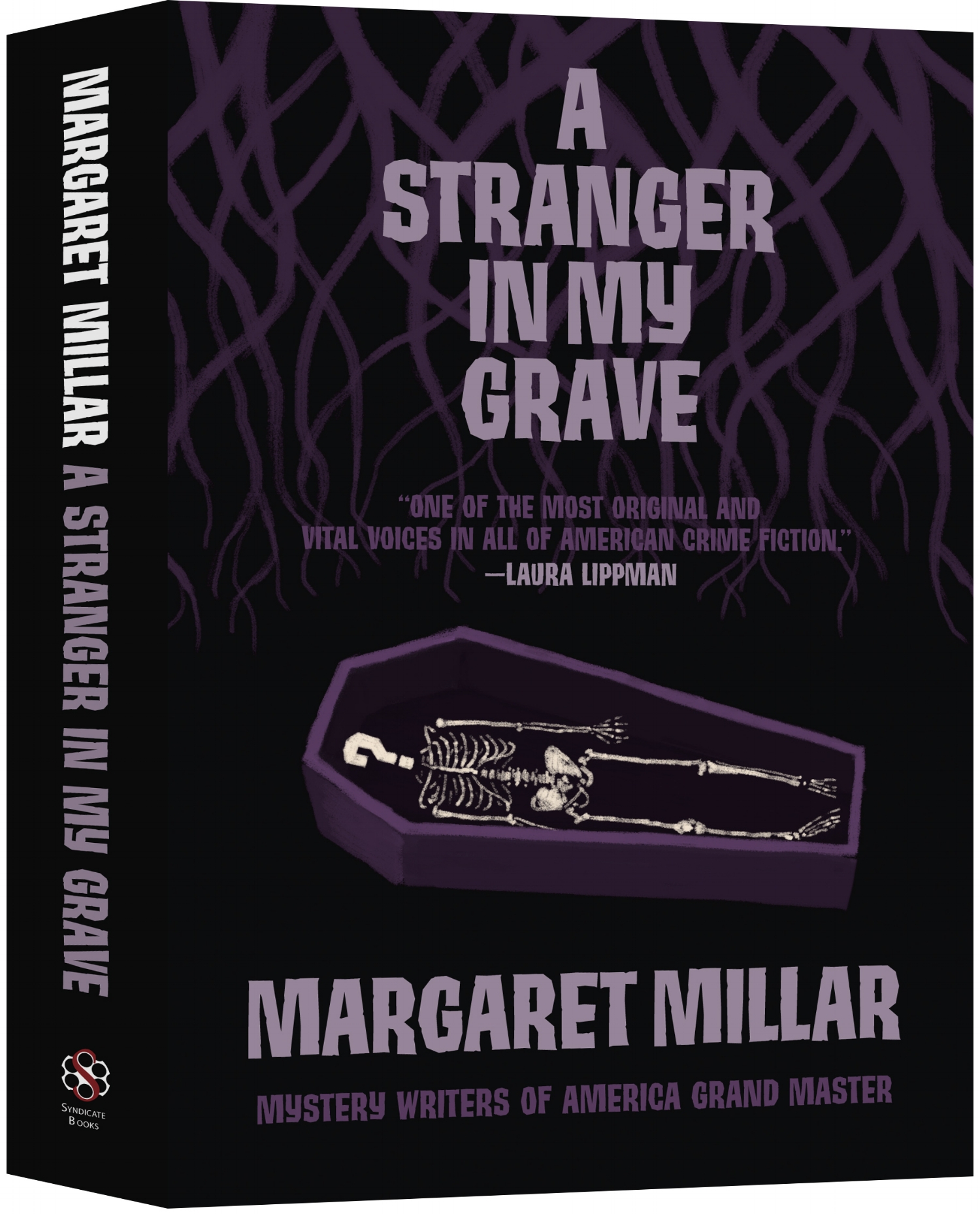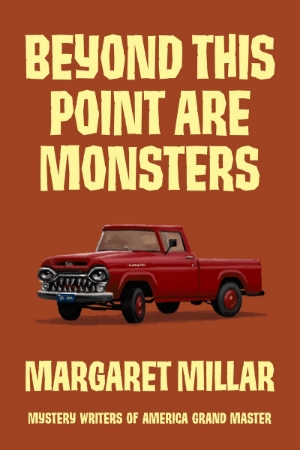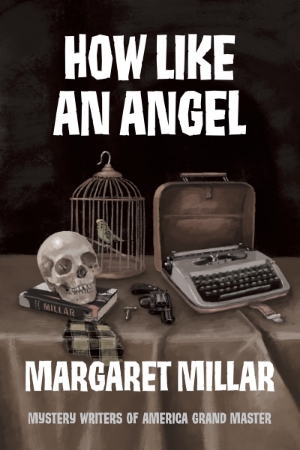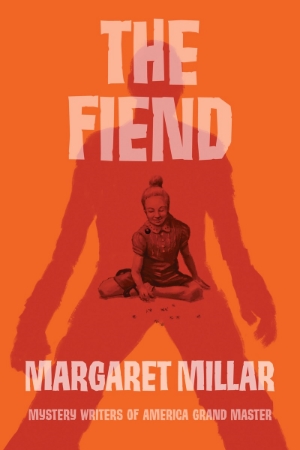COLLECTED MILLAR: THE FIRST DETECTIVES
COLLECTED MILLAR: THE FIRST DETECTIVES
Buy in Paperback Here or from Preferred Retailers:
INDIEBOUND | BARNES & NOBLE | AMAZON
Margaret Millar started her brilliant writing career with novels featuring two very different detectives: the psychologist Dr. Paul Prye and Inspector Sands of Toronto’s police department.
The two couldn’t be more different. Dr. Paul Prye is a hero of the Oscar Wildean line whose psychological insight into human nature is rivaled only by his biting sarcasm and penchant for quoting poetry at inappropriate times. The stern Inspector Sands, on the other hand, is as dry and affectless as he is dogged and intelligent.
PSYCHOLOGIST PAUL PRYE
The Invisible Worm (1941)
Margaret Millar’s debut novel introduces psychiatrist Dr. Paul Prye, a cynical man of reason with a penchant for quoting William Blake and making enemies. When Prye finds himself first the suspect in a murder case and then the target of a murderer, he quickly sets his powerful mind to the task of solving the case.
The Weak-Eyed Bat (1942)
The poetry-quoting psychologist Paul Prye finds his lakeside vacation to Muskoka, Ontario, interrupted by nosey locals, and vacation only becomes less relaxing when the free-spirited teenage daughter of a local classics professor disappears.
The Devil Loves Me (1942)
Psychologist-detective Paul Prye is getting married—or at least he would be if one of the bridesmaids didn't collapse in the middle of the ceremony. It's a case of poison—Prye knows because when he goes to look for the ring he find instead a note left by the would-be murderer.
INSPECTOR SANDS
Wall of Eyes (1943)
Millar’s thoroughly stoic hero Toronto detective Inspector Sands uncovers a conspiracy while investigating a years-old car accident after the blind survivor claims that someone is trying to kill her.
The Iron Gates (1945)
Fifteen years ago, Toronto’s Inspector Sands arrived at the Morrow family mansion as a rookie cop assisting in the investigation of the never-to-be-solved murder of Mrs. Morrow. Now the second Mrs. Morrow, Lucille, has gone missing. Sands sets himself to unravel not only the disappearance but the cold case murder as well.
PRAISE FOR MARGARET MILLAR
Mystery Writers of America Grand Master
Winner of the Edgar Award for Best Novel
Los Angeles Times Woman of the Year
“One of the most original and vital voices in all of American crime fiction.”
—Laura Lippman
“I long ago changed my writing name to Ross Macdonald for obvious reasons.”
—Kenneth Millar (Ross Macdonald), in a letter to the Toronto Saturday Night newspaper
“Very Original.”
—Agatha Christie
"Stunningly original."
—Val McDermid
"Millar's mysteries are filled with clever twists, yet what makes them special is her surgical approach to her characters' inner lives. She's got an eagle eye for the juicy stuff lots of mystery writers still ignore—questions of class, status, sexual desire and the difficult position of women. This last was something she knew about firsthand. Millar's work was long overshadowed by that of her husband, detective novelist Ross Macdonald. In fact, her best novels — like 1955's Beast in View — have a ferocious edge that make him look rather tame."
—John Powers, NPR's Fresh Air
"One of the greatest this country has ever produced."
—The Globe and Mail
"A writer whose own work is every bit as psychologically bruising and critically acclaimed as that of her husband [Ross Macdonald], if not as well known. But [Syndicate Books] hopes to rectify that with Collected Millar."
—Kevin Burton Smith, Mystery Scene Magazine
"Razor-sharp."
—The Seattle Times
“She has few peers, and no superior in the art of bamboozlement.”
—Julian Symons
“Written with such complete realization of every character that the most bitter antagonist of mystery fiction may be forced to acknowledge it as a work of art.”
—Anthony Boucher reviewing Beast in View for the New York Times
“Margaret Millar can build up the sensation of fear so strongly that at the end it literally hits you like a battering ram.”
—BBC
“Wonderfully ingenious.”
—The New Yorker
“Brilliantly superlative… One of the most impressive additions to mystery literature—and the word “literature” is used in its fullest sense.”
—San Francisco Chronicle
“In the whole of crime fiction’s distinguished sisterhood, there is no one quite like Margaret Millar.”
—The Guardian
“A superb writer.”
—H.R.F. Keating
“She writes minor classics.”
—Washington Post
“Mrs. Millar doesn't attract fans she creates addicts.”
—Dilys Winn, namesake of the Dilys Award


